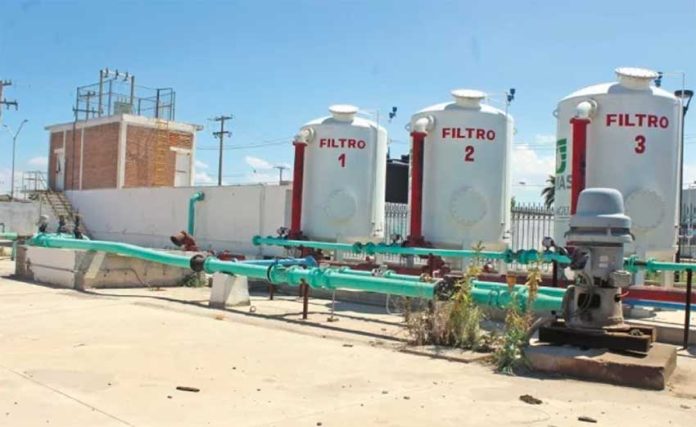Eighteen percent of the wells that supply water to residents in Torreón, Coahuila, exceed the national standards for acceptable levels of arsenic in drinking water, according to a report by the municipal water department.
Tests found arsenic levels above 0.025 milligrams per liter in 21 out of 114 of the city’s water sources.
But according to the newspaper El Universal, if the World Health Organization’s standard of 0.01 milligrams per liter was applied, 82% or 94 of the city’s water sources would be out of compliance. There are only seven filters in the city capable of removing arsenic from water, but one is out of service and two others are not fully functional.
Local environmentalist Gerardo Jiménez González said that efforts should focus on restoring the city’s aquifer rather than investing in filters and water treatment plants, which he considered are only temporary solutions.
“They extract more water than is permitted, which obliges them to drill deeper, which in turn pollutes the water. “
Regional National Water Commission (Conagua) director Óscar Gutiérrez Santana agreed with Jiménez that deeper drilling likely contributes to arsenic contamination but warned that the renewal of the aquifer could be a long process.
“The presence of arsenic in the aquifer means that it takes decades for the water to replenish itself and improve in quality.”
He added that every year Torreón uses nearly double the 519 million cubic liters of water that is naturally replenished during the same period. Mayor Jorge Zermeño said that in addition to arsenic pollution, deeper drilling also means a higher operating cost for water treatment plants.
A resident of one of the neighborhoods most affected by arsenic contamination told reporters that she only purchases bottled water to avoid contact with the city’s poisoned tap water, though she worries that children still drink the contaminated water from drinking fountains at school.
Jiménez González pointed to increased incidences of skin diseases, cognitive defects in children and cancer among Torreón’s residents, which he alleged were entirely due to the elevated levels of arsenic in the water.
There were similar findings recently in the Laguna region of Durango and Coahuila, where at least 50 of 190 wells contained dangerous levels of arsenic. Jiménez González was skeptical of Durango’s proposition to build new treatment plants, which he criticized as a deflection of the core issue.
Source: El Universal (sp)
